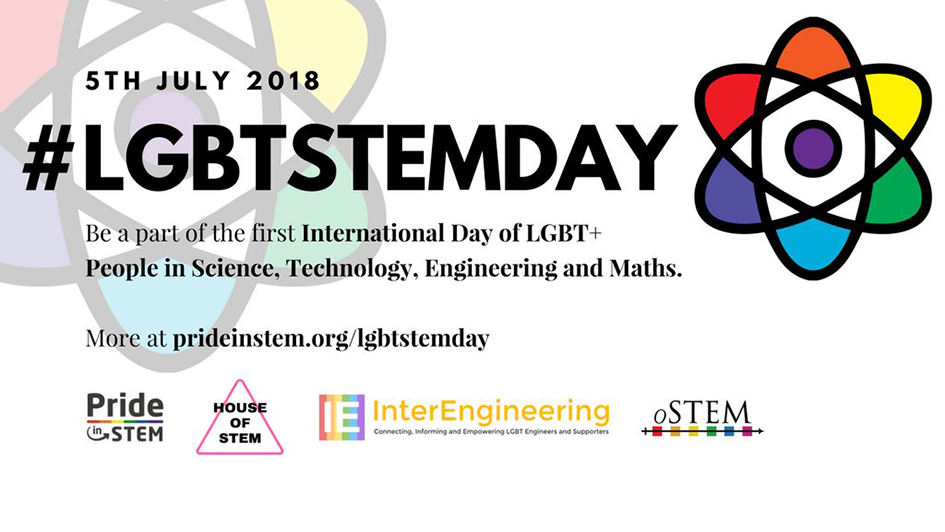
Today is the first international day of LGBT+ people in science, technology, engineering, and maths – or LGBTSTEM Day for short.
It’s a day dedicated to improving the visibility and representation of people in STEM subjects who are lesbian, gay, bisexual and/or trans (LGBT), or who identify another way, such as queer or asexual.
It’s also an opportunity to raise awareness of the challenges that LGBT+ people face in these fields, and to improve the support available to them.
As a gay man, I’m proud that The Institute of Cancer Research, London, is supporting LGBTSTEM Day. Throughout the day, we will be profiling some of our LGBT+ staff and students to demonstrate the great work they’re doing here at the ICR.
In our Science Talk blog post – Addressing career inequalities in cancer research – we spoke to Dr Vanessa McKean, Equality, Diversity and Inclusion Manager, about the ICR’s work to embed equality in everything we do.
Read more
Why is it needed?
With more and more countries introducing legislation to protect the rights of LGBT+ people in the workplace, this may seem like a battle that’s already been won.
However, as with all issues of diversity in STEM, the legal protections are just half the battle – there’s still much more work to be done to make the subjects more welcoming to LGBT+ people.
For example, 43 per cent of LGBT+ researchers in the US are not ‘out’ at work – that is, they are not open about their identity to most of their colleagues – while a survey of physical scientists found that a third of lesbian, gay and bisexual people feel pressured not to come out if they want to advance their career.
The picture is even worse for trans and gender nonconforming scientists – the same survey found that 49 per cent of trans people and 42 per cent of gender nonconforming people had experienced harassment at work.
This needs to change.
At the ICR, we believe an inclusive culture benefits everyone – it helps our staff to be happier, and it helps us attract and retain the most talented researchers to achieve our research ambitions. Therefore we need to work to make sure that LGBT+ people can feel comfortable being themselves in STEM subjects.
This applies to our students too. If we want to achieve our mission of making the discoveries that defeat cancer, we need to be able to attract the very best students, and to encourage them to stay on in the field.
Yet research has also found that lesbian, gay and bisexual students in STEM subjects are 7 per cent less likely than their straight peers to stay on in STEM fields after their degree.
Join the conversation on Twitter: #LGBTSTEMDay
What can we do?
By taking part in LGBTSTEM Day we aim to improve the visibility of LGBT+ people in science.
For many people, being LGBT+ is a key part of their identity, and a lack of visibility can make it hard for LGBT+ people to see role models they recognise, and to feel comfortable coming out.
That’s why we’re sharing profiles of some of our LGBT+ staff and students on social media, to show that all people are welcome at the ICR, and that being LGBT+ is not a barrier to working in STEM.
We’ll also be raising awareness of the day internally, encouraging everyone to consider how they can make a difference for their LGBT+ colleagues.
Of course, the work won’t stop once LGBTSTEM Day is over. We’re part of the Stonewall Diversity Champions programme, which is helping us to further improve the environment for LGBT+ people at the ICR.
Our LGBT+ network, run jointly with The Royal Marsden NHS Foundation Trust, will continue to provide a supportive forum for staff and students to highlight issues that affect LGBT+ people – and, alongside our Equality Steering Group, will continue to shape the ICR’s equality, diversity and inclusion work.
And we’ll be encouraging non-LGBT+ people to become allies by supporting their LGBT+ colleagues and classmates. We’ll be running an ally training course to help people get a better understanding of the challenges faced by their LGBT+ colleagues, and to help them speak out against any negative comments or behaviour they come across.
While there will still be challenges to overcome, we’re dedicated to providing a safe and supportive environment for all our staff and students. By demonstrating our commitment to equality, through LGBTSTEM Day and beyond, we want to ensure that the ICR is a place where everyone feels welcome, and is able to achieve their true potential.
comments powered by